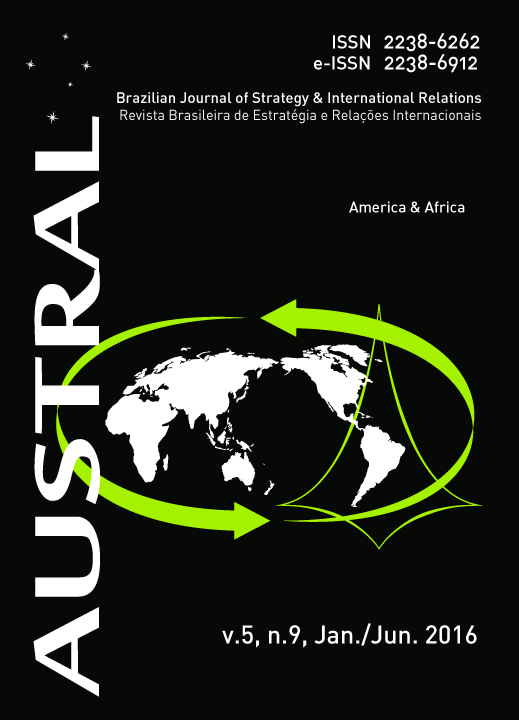TRANSNATIONALISM AND PARADIPLOMACY IN THE ECONOMIC RELATIONS BETWEEN BRAZIL AND ANGOLA: THE CONSTRUCTION OF THE CAPANDA HYDROPOWER PLANT BY THE CONSTRUTORA ODEBRECHT
DOI:
https://doi.org/10.22456/2238-6912.65825Keywords:
Transnationalism, Paradiplomacy, Brazil, Angola, Capanda, Odebrecht.Abstract
The reconstruction of Angola, with the end of civil war, depended and still depends largely on receiving foreign investments, thus, the reason for having the Brazilian companies as key allies as receivers of special government credit lines. What led Brazil to adopt an indirectly influential stance toward Angola despite its explicit foreign policy directed to increase the South-South trade? What has led the Brazilian companies to accept the risks of doing business in a country with low political and institutional stability, plagued by a civil war, and without a stable international legal framework in place? Using the concepts of transnationalism and paradiplomacy as theoretical framework, the answers to these questions will be discussed in this article, which focuses on the case of the construction and expansion of the Capanda hydroelectric plant.


